#albert bassermann
Explore tagged Tumblr posts
Text
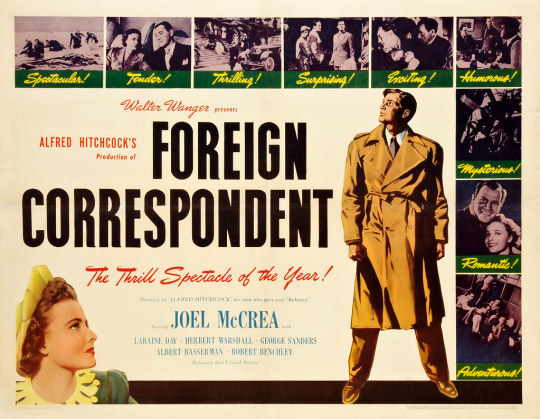

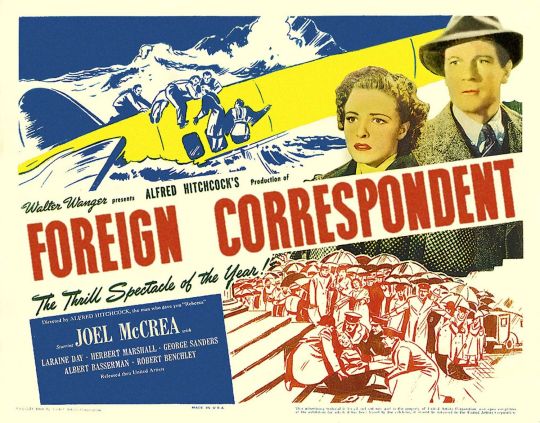


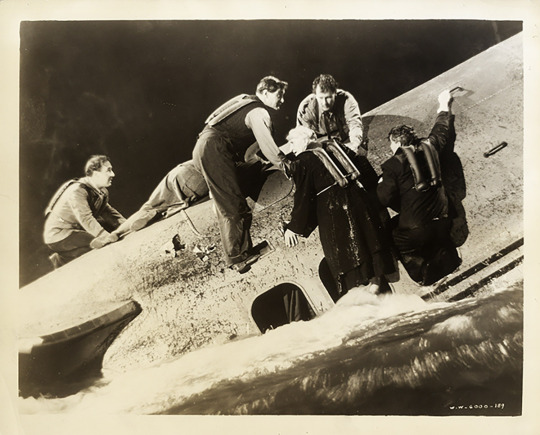
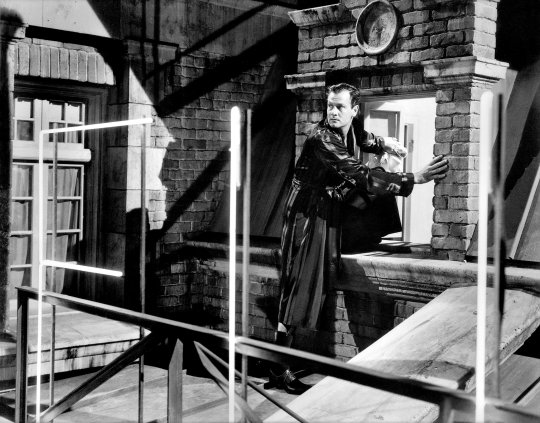

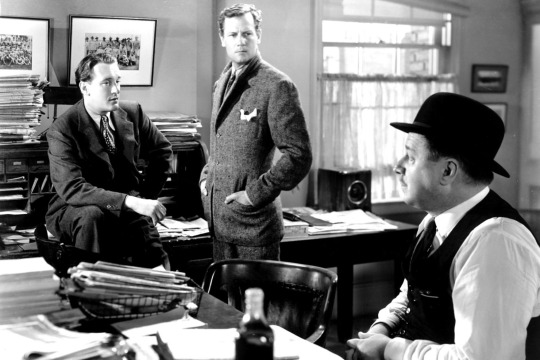

Foreign Correspondent (1940) Alfred Hitchcock
July 30th 2023
#foreign correspondent#1940#alfred hitchcock#joel mccrea#laraine day#george sanders#herbert marshall#robert benchley#albert bassermann#eduardo ciannelli#edmund gwenn#harry davenport#imposter#personal history
40 notes
·
View notes
Photo
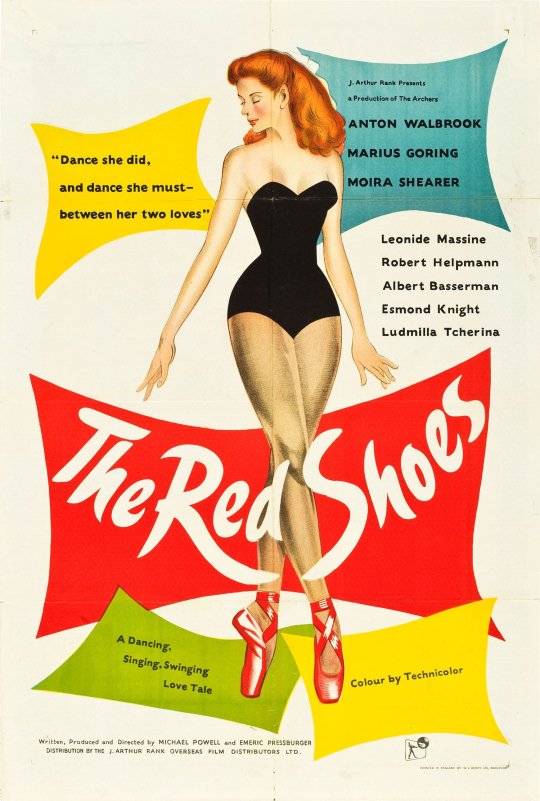
#the red shoes#anton walbrook#marius goring#moira shearer#léonide massine#robert helpmann#albert bassermann#esmond knight#ludmilla tchérina#michael powell#emeric pressburger#1948
27 notes
·
View notes
Text

Hans Albers, Albert Bassermann and Olga Tschechowa
German vintage postcard
#albert bassermann#olga tschechowa#carte postale#bassermann#ephemera#photo#albers#historic#postcard#tarjeta#postal#hans albers#olga#briefkaart#ansichtskarte#albert#photography#vintage#postkaart#postkarte#old#german#sepia#hans#tschechowa
8 notes
·
View notes
Text
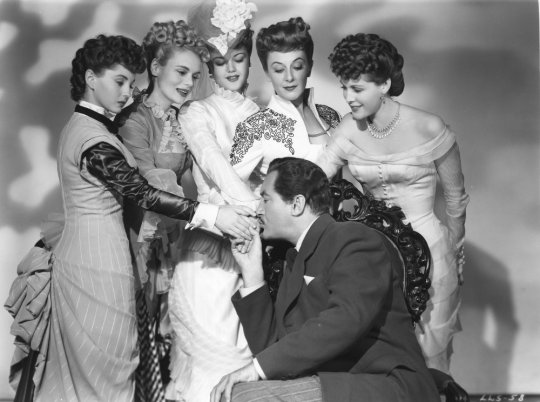
Seine Affairen mit all den schönen Frauen, die ihm scharenweise verfallen, nutzt der Halunke und Tunichtgut Bel Ami nur, um sich auf der Karriereleiter hinaufzubewegen. Natürlich entgeht er seiner gerechten Strafe nicht, interessanterweise allerdings nur in der Hollywoodvariante, nicht in Maupassants berühmten Roman, habe ich jetzt herausgefunden. Läuft im Rahmen der stark vernachlässigten immerwährenden George-Sanders-Wochen und Angela-Lansbury-Wertschätzung-Maßnahmen.
#The Private Affairs of Bel Ami#George Sanders#Angela Lansbury#Frances Dee#Ann Dvorak#Susan Douglas#Marie Wilson#John Carradine#Warren William#Albert Bassermann#Richard Fraser#Film gesehen#Albert Lewin#Guy de Maupassant
2 notes
·
View notes
Text
youtube
FOREIGN CORRESPONDENT (1940) Grade: B-
Not the typical Hitchcock film you would think of. Still, it's a master class in spy movies. It def set a road map for future spy scripts.
#Foreign Correspondent#1940#B#Thriller Films#Spies#Spy#London#Alfred Hitchcock#World War II#WWII#Reporter#Joel McCrea#Laraine Day#George Sanders#Herbert Marshall#Albert Bassermann#Robert Benchley#Eduardo Ciannelli#Martin Kosleck#Edmund Gwenn#Charles Wagenheim#Charles Halton#Barbara Pepper#Youtube
1 note
·
View note
Video
Lee Parry by Truus, Bob & Jan too! Via Flickr: German postcard by Ross Verlag, no. 4646/2, 1929-1930. Photo: Atelier Balàzs, Berlin. Collection: Geoffrey Donaldson Institute. Lee Parry (1901-1977) was a German film actress of the silent and the early sound era, often in films by her husband Richard Eichberg. She appeared in 48 films between 1919 and 1939. Lee Parry was born Mathilde Benz in 1901 in Munich, Germany. She was the daughter of an opera tenor, actor and variety director. When she was sixteen, she moved to Berlin. There she was discovered by director and producer Richard Eichberg. She made her debut in 1919 in the leading role of Sünden der Eltern/Sins of the Parents (Richard Eichberg, 1919). Later Eichberg would become her husband. The following years she starred under his direction in several films for his studio like Nonne und Tänzerin/Nun and Dancer (1919), Hypnose/Hypnosis (1920), and two-parters like Der Tanz auf dem Vulkan/Dance on the Volcano (1920), and Die Fluch der Menschheit/The Curse of Man (1920). In these films she often appeared opposite Violetta Napierska, Robert Scholz and a young Béla Lugosi. These three actors were again her co-stars in Ihre Hoheit die Tänzerin/Her Highness the Dancer (Richard Eichberg, 1922). In the historical epic Monna Vanna (Richard Eichberg, 1922), based on a play by Maurice Maeterlinck, her co-star was Paul Wegener, the legendary star of Der Golem/The Golem (Carl Boese, Paul Wegener, 1920). Werner Krauss, famous for his role as Dr. Caligari, was her partner in Fräulein Raffke/Miss Raffke (Richard Eichberg, 1923). Lee Parry continued working with Richard Eichberg in hits like Die Motorbraut/The Motor Bride (Richard Eichberg, 1925) and Luxusweibchen/Luxury Wife (Erich Schönfelder, 1925) with Hans Albers. Around that time Parry and Eichberg divorced. The following year Lee worked for another studio, Maxim-Film/Ebner and starred in Fedora (Jean Manoussi, 1926) next to Anita Dorris. For this studio she also featured in Wenn das Herz der Jugend spricht/When the heart of Youth Speaks (Fred Sauer, 1926) opposite Albert Bassermann, Die Frau die nicht nein sagen kann/The Woman Who Can't say No (Fred Sauer, 1927) with Hans Albers, and the comedy Die leichte Isabell/Light Isabell (Eddy Busch, Arthur Wellin, 1927) with Gustav Fröhlich. In France she appeared in L'eau du Nil/The water of the Nile (Marcel Vandal, 1928), but at the end of the 1920s her roles became smaller and less frequent. After a hiatus of two years Lee Parry made her first appearance in a sound film in Die lustigen Weiber von Wien/The Merry Wives of Vienna (Géza von Bolváry, 1931) opposite Willi Forst. The following year she featured again in three films: the marital-mix-up farce Ein bißchen Liebe für Dich/A Bit of Love (Max Neufeld, 1932) as the wife of Hermann Thimig, the operetta Johann Strauss, k. u. k. Hofkapellmeister/Viennese Waltz (1932, Conrad Wiene), and another operetta Liebe auf den ersten Ton/Love at First Sight (Carl Froelich, 1932). In 1933 she starred again in three films, Keinen Tag ohne Dich/No Day Without You (Hans Behrendt, 1933), Der große Bluff/The Big Bluff (Georg Jacoby, 1933) and Die Herren vom Maxim/The Gentlemen from Maxim's (Carl Boese, 1933). But after this successful year she would make only two more pictures. After the comedy Das Einmaleins der Liebe/Love's Arithmetic (Carl Hoffmann, 1935) starring Luise Ullrich and Paul Hörbiger she retired. Shortly before WWII she appeared in the French production Adieu Vienne/Farewell Vienna (Jacques Séverac, 1939) with Gustav Fröhlich. It would be her last film. She was also a well-known singer who made many records. Her second marriage was to Siegmund Breslauer, director of the German theater in Buenos Aires, in 1956, She moved to South-America where she made her theater comeback as Manon and performed there on many stages. Lee Parry died in Bad Tölz, Germany, in 1977. Sources: Thomas Staedeli (Cyranos), Wikipedia, AllMovie, and IMDb. And, please check out our blog European Film Star Postcards.
#Lee Parry#Lee#Parry#German#Actress#European#Film Star#Cinema#Film#Cine#Kino#Picture#Screen#Movie#Movies#Filmster#Star#Silent#Sepia#Darstellerin#Schauspielerin#Glamour#Allure#Vintage#Postcard#Postkarte#Carte#Postale#Cartolina#Tarjet
0 notes
Text
1 note
·
View note
Text

Anita Berber as noblewoman Julia Orsini with Tibor Lubinsky in a still image from the surviving 1922 Richard Oswald film adaptation of Lucrezia Borgia. This film stars Austrian star Liane Haid in the title role with Conrad Veidt as Cesare Borgia and Albert Bassermann as Pope Alexander VI.
1 note
·
View note
Text
The Shanghai Gesture

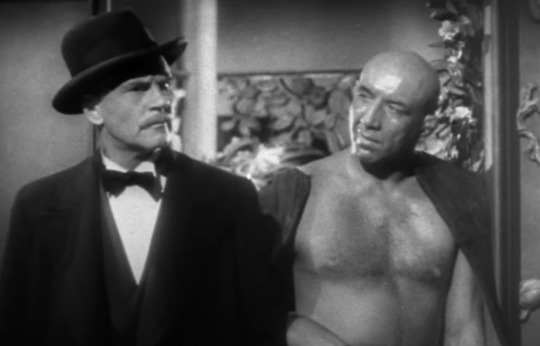
Josef von Sternberg’s THE SHANGHAI GESTURE (1941) takes place in such an artificial world a shot of a plane flying across a real sky seems out of place. Yet the director’s style is so consistent and strong that even the film’s flaws, chief among them a truly atrocious drunk scene played by Gene Tierney, can’t detract from its overall power. To appease the censors, von Sternberg had to transform Mother Goddam’s brothel from John Colton’s play into Mother Gin Sling’s casino and have her enemy’s daughter succumb not to opium addiction but to addictions to gambling, alcohol and a hunky Syrian (he was a Japanese prince in the original, but many states banned films with interracial romances). Almost everything is shot on sound stages, with the casino, a wonder of art direction, arranged in descending circles like Dante’s vision of hell. At the center is Ona Munson, a skinny, freckled blonde transformed into the Orientalized image of corruption, Mother Gin Sling, pitched somewhere between Norma Desmond and Lucretia Borgia. It’s a marvelous performance, with Munson dominating every shot she’s in and even piercing the heavy “yellowing up” makeup to create a rich picture of a woman who’s allowed a life of pain to turn her into a dragon. Tierney is the object of her revenge, and though her line readings are tinny and unconvincing, she looks marvelous in gowns designed by Oleg Cassini, and her physical deterioration is a great visual trope. Walter Huston is reliably good as the tycoon who once wronged Munson and now is trying to close her casino (it’s a post-colonial comment as the Western politicos and businessmen decide to turn the city’s Chinese-run casino district into homes for wealthy Europeans). The real surprise, however, is Victor Mature as Doctor Omar, who seduces Tierney so he can get rich off her gifts and a little blackmail. He thrives under von Strenberg’s controlling direction to create a powerful and very sexy image of decadence. The cast also includes Phyllis Brooks as a wise-cracking chorus girl, Albert Bassermann as the colonial leader, Eric Blore as Mother Gin Sling’s bookkeeper, Maria Ouspenskaya as her silent servant (her lines were cut when preview audiences roared at seeing a Chinese woman with a thick Russian accent), Grayce Hampton as a society doyenne and Marcel Dalio as the croupier. Mike Mazurki made his film debut as a rickshaw driver who seems to be flirting successfully with Houston.
0 notes
Photo

I'm in love with a girl, and I'm going to help hang her father.
Foreign Correspondent, Alfred Hitchcock (1940)
#Alfred Hitchcock#Charles Bennett#Joan Harrison#Joel McCrea#Laraine Day#Herbert Marshall#George Sanders#Albert Bassermann#Robert Benchley#Edmund Gwenn#Eduardo Ciannelli#Harry Davenport#Rudolph Maté#Alfred Newman#Dorothy Spencer#1940
8 notes
·
View notes
Photo

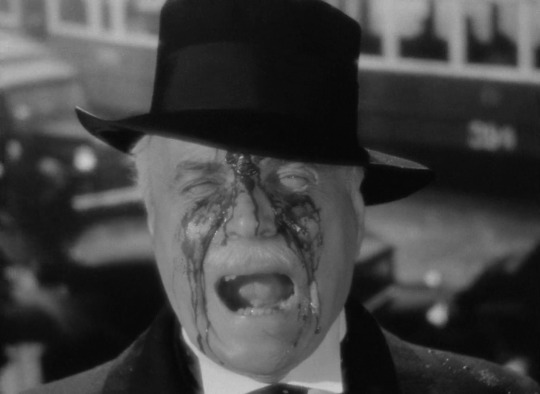
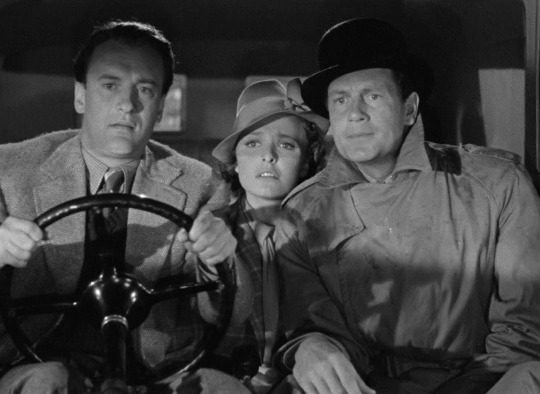

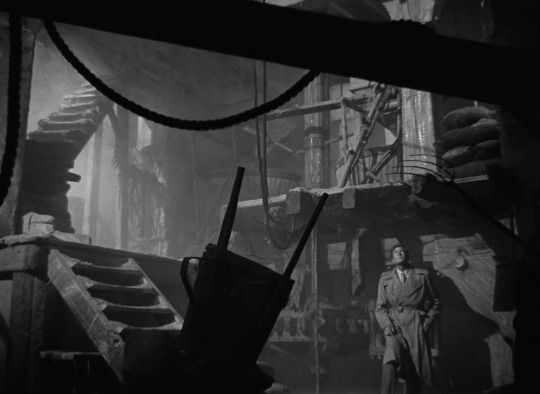
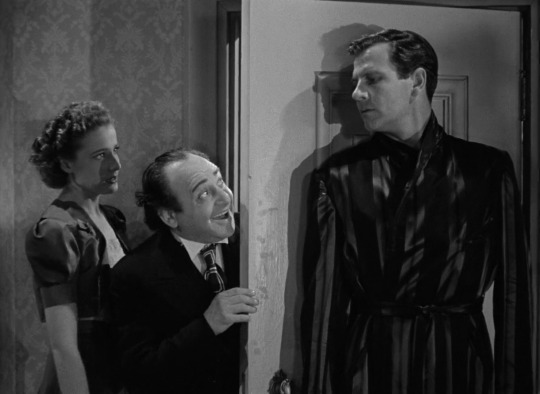
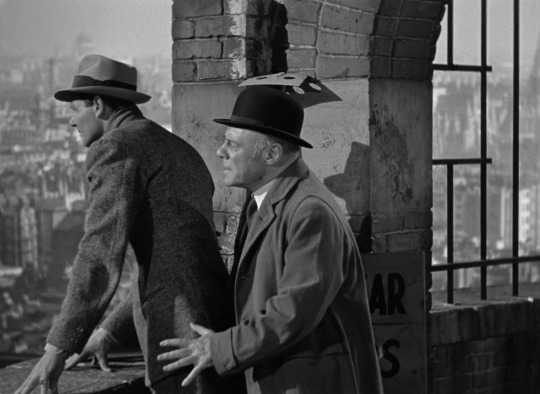

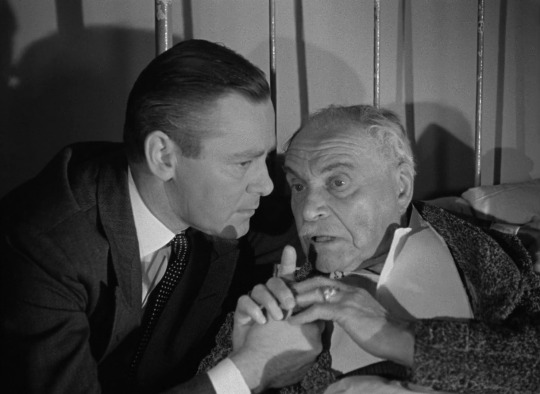

Foreign Correspondent (1940, Alfred Hitchcock)
4/30/22
#Foreign Correspondent#Alfred Hitchcock#Joel McCrea#Laraine Day#Herbert Marshall#George Sanders#Albert Bassermann#Robert Benchley#Edmund Gwenn#Eduardo Ciannelli#40s#thriller#mystery#Classical Hollywood#World War II#reporters#journalism#espionage#London#Netherlands#investigation#spies#suspense#romance#oscar nominee#assassination#kidnapping#action
9 notes
·
View notes
Photo


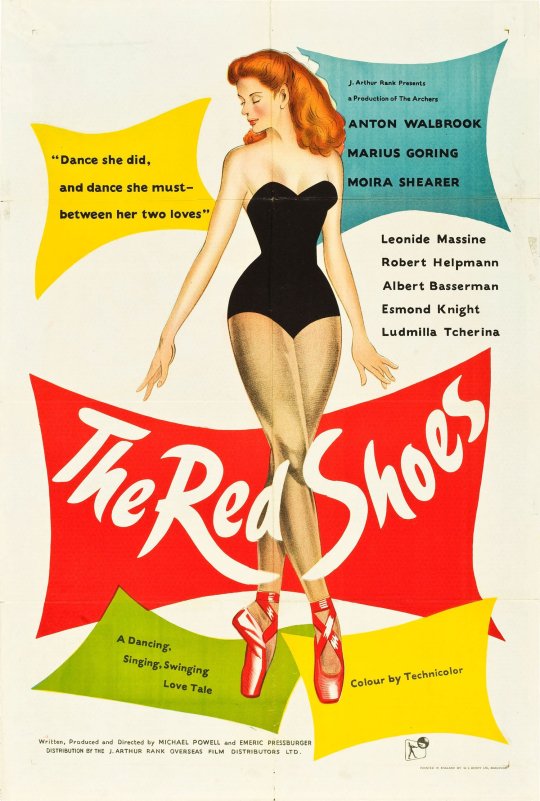



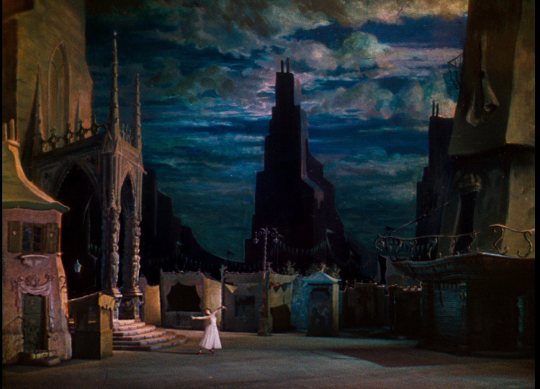


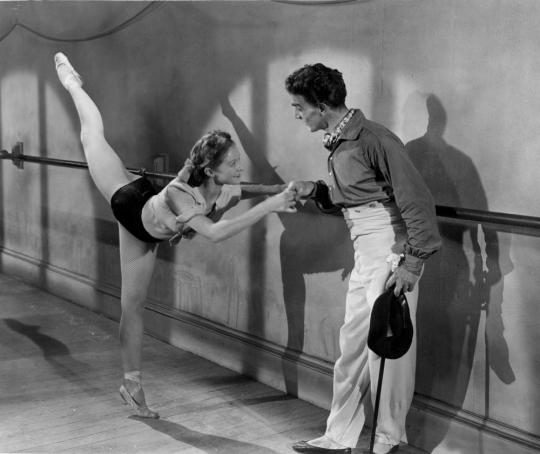
The Red Shoes (1948) Michael Powell and Emeric Pressburger
December 11th 2022
#the red shoes#1948#michael powell#emeric pressburger#moira shearer#anton walbrook#adolf wohlbruck#marius goring#robert helpmann#albert bassermann#leonide massine#esmond knight#eric berry#ludmilla tcherina#powell and pressburger#the archers
16 notes
·
View notes
Text
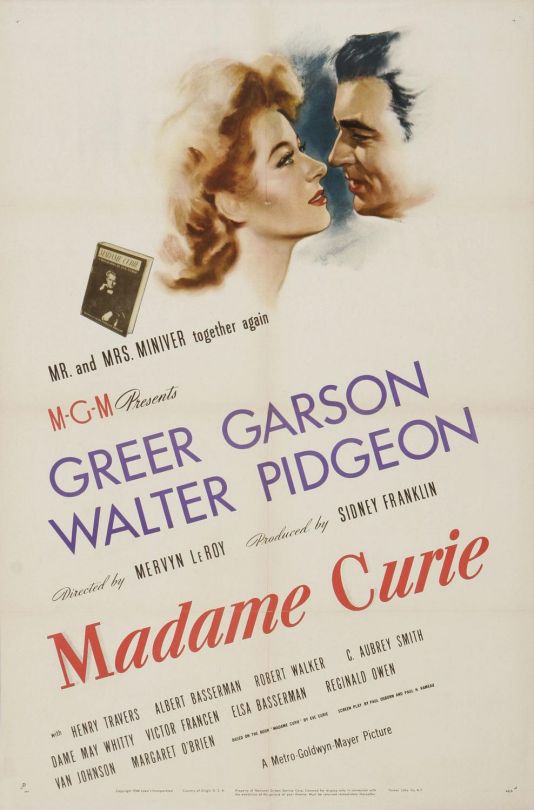
#Madame Curie#Greer Garson#Walter Pidgeon#Henry Travers#Albert Bassermann#Robert Walker#C. Aubrey Smith#Dame May Whitty#Victor Francen#Elsa Bassermann#Reginald Owen#Van Johnson#Margaret O'Brien#Mervyn LeRoy#1943
4 notes
·
View notes
Text

German stage actor Albert Bassermann on a vintage postcard
#postal#german#actor#historic#ansichtskarte#albert bassermann#sepia#vintage#tarjeta#briefkaart#photo#stage#albert#bassermann#postkaart#ephemera#postcard#postkarte#photography#carte postale
1 note
·
View note
Text

Wir feiern 100 Jahre Rhapsody in Blue (sie wurde am 12. Februar 1924 uraufgeführt) mit der dramaturgisch und faktenchecktechnisch etwas wackligen Gershwin-Filmbiographie Rhapsody in Blue, die aber jede Menge fabelhafte Musiknummern enthält, darunter -Sie ahnen es! Und nicht zu knapp!- die Rhapsody in Blue.
#Rhapsody in Blue#Robert Alda#Oscar Levant#Joan Leslie#Alexis Smith#Albert Bassermann#Hazel Scott#Al Jolson#Morris Carnovsky#Charles Coburn#Paul White#Film gesehen#Irving Rapper#Musical#George Gershwin
0 notes
Text








The Red Shoes (1948)
Directed by Michael Powell & Emeric Pressburger, Cinematography by Jack Cardiff


"One day when I'm old, I want some lovely young girl to say to me, "Tell me, where in your long life, Mr. Craster, were you most happy?" And I shall say, 'Well, my dear, I never knew the exact place. It was somewhere on the Mediterranean. I was with Victoria Page." "What?" she will say. "Do you mean the famous dancer?" I will nod. "Yes, my dear, I do. Then she was quite young, comparatively unspoiled. We were, I remember, very much in love."
#scenesandscreens#the red shoes#Brian Easdale#anton walbrook#marius goring#moira shearer#robert helpmann#Léonide Massine#Albert Bassermann#Ludmilla Tchérina#esmond knight#Austin Trevor#Jean Short#Gordon Littman#Eric Berry#Irene Browne#Jerry Verno#Yvonne Andre
140 notes
·
View notes
